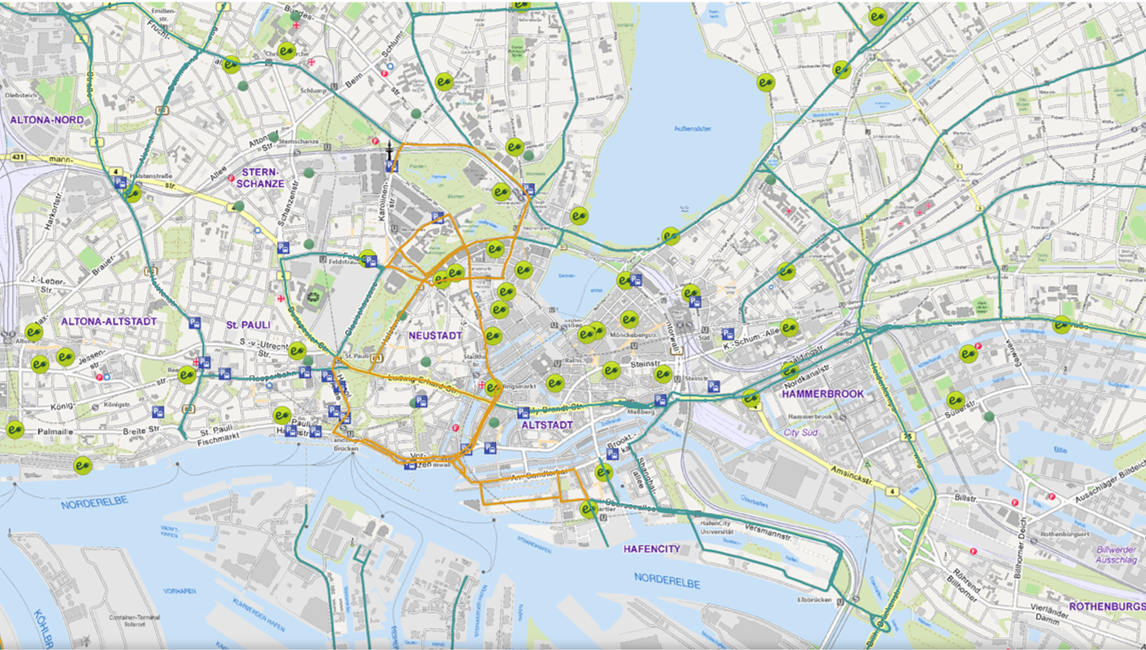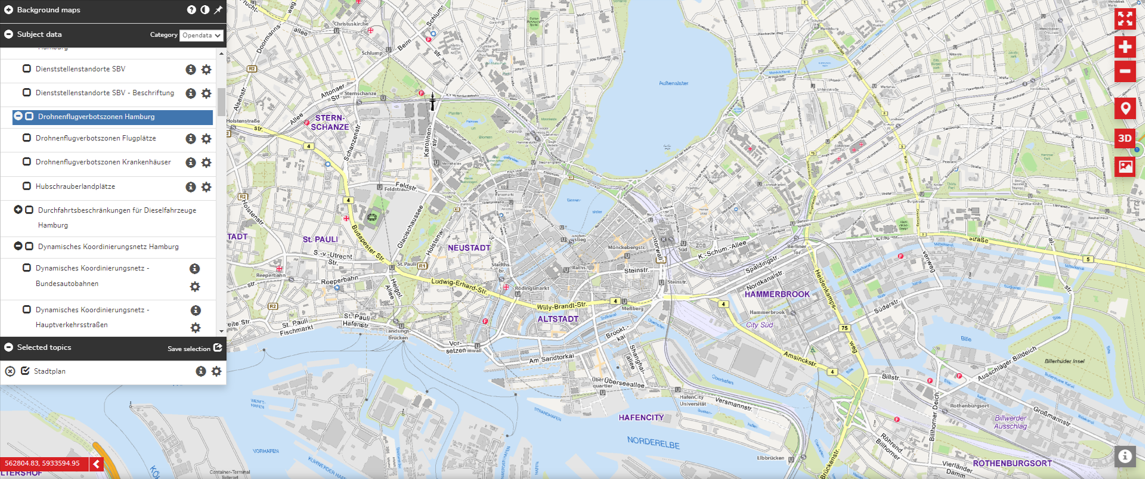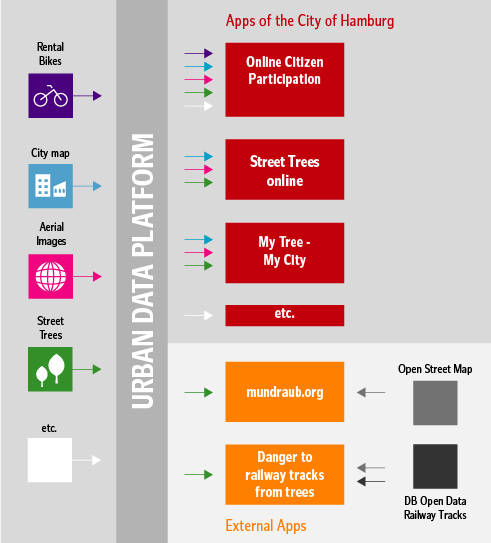
Hamburg Urban Data Platform – Building Open Data Platform for Digital City
Hamburg is the second-largest city in Germany with a total population of 2 million inhabitants. The city has the vision to evolve as a Digital City and generate a large amount of data from the areas of supply and disposal, administration, health, construction, mobility, logistics, transport, and economy. Data will play an important role in building the city of the future.
The city of Hamburg launched The Urban Data Platform Hamburg (UDP_HH) in 2017 and has been expanding the same over the period and evolving as a technological “data hub” of the city. The Urban Data Hub is a cooperation between the State Agency for Geoinformation and Surveying as the lead agency and the CityScienceLab (CSL) of HafenCity University Hamburg.


The platform receives data from various sources and followed a decentralized approach. After receiving the data, the platform filtered the data and perform new calculations to show it visually on the map. Urban Data Platform becomes the interact to use the data and integrate into several other apps.
Urban Data Platform shares various data sets related to transportation including traffic count, bike-sharing, EV charging and cyclists counting, etc. In 2020, the city of Hamburg installed over 2,000 thermal imaging cameras to collect anonymous traffic data in real-time at around 420 locations throughout the city. The key purpose of the system was to improve current traffic management and long-term traffic planning.
The system collects the following traffic data and sends it to Urban Data Platform:
- Traffic counts
- Waiting periods
- Traffic light signals & signal requests
- Traffic flow
Using artificial intelligence, public or private solutions using UDP_HH data can provide optimal scenarios to the traffic control center which optimizes the traffic signals to improve the throughput. The traffic lights computers feed the data back to the Urban Data Platform to show the impact and result in a continuous improvement loop.
In 2021, the city of Hamburg is leading the project Connected Urban Twins (CUT) in partnership with other cities – Leipzig and Munich. Under this project, cities will jointly advance the development of digital twins for cities and municipalities.
(Presentation is shared at ITF 2022)


